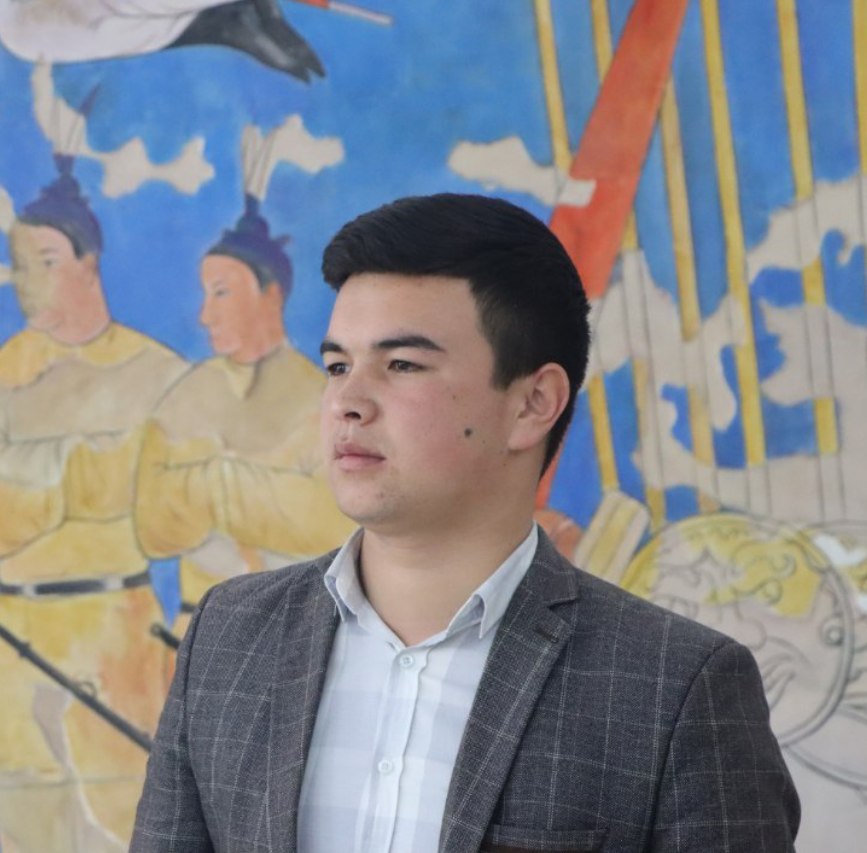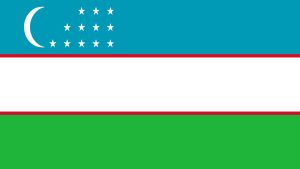in the box of the tomorrow skull fragrance & pasta bowling & forest hush is this ladder a worm to snow? you bother me danish zoo sherman coyote chickpea— don’t! halo farm in charge of the sauce (mumble, mumble) crackling toulouse shopping for a tooth at the old ben franklin store balking falcon J. D. Nelson’s poems have appeared in many small press publications, worldwide, since 2002. He is the author of ten print chapbooks and e-books of poetry, including *Cinderella City* (The Red Ceilings Press, 2012). Nelson’s first full-length collection is *in ghostly onehead* (Post-Asemic Press, 2022). Visit MadVerse.com for more information and links to his published work. His haiku blog is at JDNelson.net. Nelson lives in Colorado, USA.
Monthly Archives: June 2023
Poetry from Pat Doyne
THE GREAT REPLACEMENT “Fox News Media and Tucker Carlson have agreed to part ways.” 4/24/23 Good-bye, Tucker. We’ll miss your giggle. Who else makes faces on prime-time TV while spewing rhetorical questions? Who else waxes indignant about Bud Light’s sales pitch, Dr. Seuss’ fantasies, Mr. Potato Head’s parts, or “Green M&Ms go woke”? Here are some of Tucker’s greatest hits: #1 George Floyd died of a drug overdose. (Blasted after the autopsy ruled homicide.) #2 COVID-19 vaccine—Maybe it “doesn’t work, and they’re simply not telling us.” #3 During the 2020 election, there was “meaningful voter fraud in Georgia.” #4 Russian’s invasion of Ukraine is a “territorial dispute.” Why take Ukraine’s side? Has Russia “killed your dog?” Tucker pulls conspiracies out of hats, recasting news as “us” vs. “them.” From O’Reilly, Tucker inherited his populist schtick. Like O’Reilly, the populism is fake; stokes suspicion and fear in “common folks.” But Tucker’s racism is genuine. He feeds viewers raw chunks of white nationalism. Talks about the “Great Replacement” theory, a plot to replace Patriots with immigrants who will vote to make America second-rate. He’s a Fox News entertainer, not a reporter. But is Tucker the character he plays on TV? His e-mails cast doubt— in private, says he loathes Trump, but bows and scrapes in public, flame-throws hot topics in a squeaky voice, his face scrunched-up with disbelief. Tucker was Kevin McCarthy’s chosen one. Sole winner of the January 6 video footage, expected to document the party line. So he edited out door-bashing, cop-smashing, office-crashing-- what viewers of real news stations viewed with horror and dismay. Tucker spliced snippet that showed tourists milling about peacefully. Respectfully. See? They’re trying to frame Proud Boys and Q-Anon. It’s them against us again. But January 6 was ignited by Fox and friends. Weeks and week of trash-talk— Dominion voting machines skewed election results, stole the election from #45. Fox hosts knew these claims were baseless, dished out conspiracy anyway, night after night, to feed viewers’ outrage, and maintain ratings. So Dominion sued. Fox had to pay big bucks: $787 million. Someone’s head must roll! “We’ll be back Monday,” said Tucker-- unaware of the sword of Damocles over his head. Fox took a page from its own script-- adapted the “Great Replacement” theory. Replaced Tucker. Good-bye, Tucker. I’m trying not to giggle. Copyright 4/2023 Patricia Doyne
Poetry from Murodova Muslima Kadyrovna
Flag of the country The place of worship is golden soil, A hot spring is a healing herb. The motto he always used to say, The flag of the Motherland is sacred My flag flutters in the sky, Uzbek pride is the national flag. Reflecting four different meanings, The flag of the Motherland is sacred. Clear skies and blue waters, The reflected blue color is blue color. My grandfather's soul is happy enough, The flag of the Motherland is sacred. Red color is blood Green is characteristic of nature. White is a symbol of purity, peace, The flag of the Motherland is sacred. We are the future of this country. Our stars of tomorrow. Let us raise the flag of this country. The flag of the Motherland is sacred.
Murodova Muslima Kadyrovna is a student in the 6th “A” grade of the 30th general school of Jondor district, Bukhara region, Uzbekistan.
Poetry from Aminova Oghilay

Spring
You are the season of youth, this world will bright,
Fields live in a green world,
I sing for you, pen in hand,
Bring joy to hearts, spring!
Bring confidence to hearts, spring,
Bring peace and harmony, spring,
Come and pick the flowers of goodness, spring,
Bring happiness and joy, spring!
When the apricot blossoms, these gardens are white,
The mountains are full of crimson tulips,
This spring leads to sweet dreams,
Spring is the bride of the seasons.
Aminova O’g’iloy is the daughter of Holmurod, 8th grade student of general education school No. 45, Tortkol District, Republic of Karakalpakstan.
Essay from Boqiyev Sherkhan Ubaydullo

HISTORICAL ROOTS OF TURKISH-SOGHD RELATIONS IN CENTRAL ASIA
The system of trade routes of regional and international importance, formed in the territory of Central Asia, has become important in the life of the peoples of the East and West. Mil. cf. This road, which began its activity in the III-II millennium cf. In 138 AD, Zhang Jiang revealed to China that the Sughdians were not only skillful traders, but also suppliers of quality goods to the markets. Sogdian products went from Byzantium to Korea and Japan, from Tibet to Sri Lanka by land and sea, there was a great demand for agricultural and handicraft products of Sogd abroad.
Chinese sources told the Sughd region: “The climate is warm, suitable for growing high-quality wheat.” The inhabitants are inclined towards gardening and agriculture. The trees are beautiful,” he described. During this period, horticultural products (peach and cherry), viticulture (raisins), thoroughbred horses and sheep were exported to China. According to the 7th-century Chinese tourist and monk Xuan Tsang, who competed with the Sogd homeland of China in silk production, the customs of the Sutulisen (Ustrushona) people were similar to those of the Choch people, and their king was considered a vassal of the Turkic Khagan. This shows that Ustrushena is under the influence of Turkic khanates such as Sogd and Choch and its place in Turkish-Sogdian relations.
During the time of the Turkic Khanate, the Turks became the leading force in the oasis. But the Turkic rulers of the oasis used the Sogdian script in their legal proceedings. In particular, coins dating back to the 7th-8th centuries were minted in Sogdian script and language. In this science, they are called Turkic-Sogdian coins. In the early Middle Ages, under the influence of the Sogdian population, the Chochians used their language and writing. The language of communication of the Turkic layer here was the Sogdian language. The Ferghana Valley and the transit routes passing through it played an incomparable role in the trade relations of the Sogd with the East and Turkish-Sogdian relations. The trade routes passing through the Ferghana Valley formed a network in the regional and external relations of the Sogd, and in this direction the Sogdians followed the same route as the Choch. cf. Those who started the movement from the IV-III centuries.
From the 1st century, the Sogdians reached the Indian territories through Tokharistan. In particular, out of more than one and a half thousand written materials in 17 languages found by the German-Pakistani expedition in the Karakorum valley, 250 belong to the Sogdians. The Sughdians actively traded on the mountainous Shatial and Khilos roads of the Karakoram valley and extended their activities to the southern and Turkish-Sogdian relations continued in an easterly direction and went beyond the borders of Central Asia and found a peculiar development in the oases of East Turkestan of Central Asia and in the areas adjacent to China.
It is known that the Silk Road increased China’s interest not only in Davan (Fergana), but also in the whole of Central Asia. Therefore, the emperors sent their spy tourists (Song Yun, Xuan Jian, Hoi Chao, etc.) to Central Asia and tried to collect a lot of information. Sogdians million cf. From the 5th to the 4th centuries, it penetrated into the oases of East Turkestan through trade routes. Mil. cf. Trade relations with China have been established since the 3rd century. During these times, the first Sogdian colonies appeared in East Turkestan. The role of the Sogdians in the creation of the Turkic khanate in Central Asia was incomparable. As representatives of the Sogdian colonies in Gansu, they took over the trade to the south, east and north.
With the Turkish Khanate having defeated the Chinese Sui dynasty, the Sogdians took control of the province of Hami near the city of Kumul and introduced khaganate rule here.Kan Su-mi from Samarkand was appointed to the post of ruler (duhufusi) of the Beyan district in Ordos. During this period, immigrants from Sogd continued to arrive in these areas. It was not easy for the Sogdians to trade with China. Historian Hou Ren-chih writes that China, which pursued a policy of “no pay, no trade, there is pay – there is trade,” was primarily Turkic.
The Sughdians sold their fabrics, garments and handicrafts to the Turks at a low price, based on economic and political interests. In the 7th-8th centuries, under the influence of the Turkish Khanate, Chinese-style coins were minted in Sogd. The trading activities of the Sogdians throughout Central Asia prepared the political, socio-economic and ethno-cultural ground for Turkic-Sogdian relations in the early Middle Ages and intensified the process of creating a single ethno-cultural space in a vast region. In addition, the network of the Great Silk Road from Marv to the Great Wall of China united the peoples and peoples who lived in this area. On the basis of economic cooperation, it brought them closer politically and ethno-culturally.
Competing with China in the East and Iran in the West, the Turks and Sogdians worked equally hard to preserve the independence of the region. Since the 6th century, the Turks have united and successfully used not only military, but also diplomatic methods to conquer other territories. Sogdian diplomacy helped them in this matter. The diplomatic abilities of the Sogdians in this regard were not lost sight of by the rulers of the newly formed Turkic state. Annapanto (Nakhband), a native of Bukhara and a Sogdian living in Gansu, who supported the independent policy of the Turks, went to the palace of the Chinese emperor in 544 as an ambassador of the Turks.
The conquest of Eastern Turkestan and Central Asia by the Hephthalites, and Khorasan and Balkh by the Sassanids led to a struggle between the allies for the possession of the Silk Road. The attitude of the leading Sogdians in trade to this issue was of great importance. The Sughdians served the interests of the kaganate, faithful to the tradition of brotherhood with the Turks. The Kaganate expected advice, economic participation and support from the Sogdians in this matter. Because it was possible to gain control over trade routes through the Sogdians. But the caravan routes to the West passed through Iran. The connection of the Turkish Khanate with Byzantium through the territory of Iran and Iran with China through Central Asia prompted the parties to compromise. The rapprochement of the Turks with Byzantium put Iran in a difficult position, as a result of which “political and economic conflicts between the allies intensified.”
The movement of Sogdian merchants through Iran was limited. They could solve this problem only with the help of the Turkish Khanate. No wonder the Turks and Sogdians were depicted side by side on the paintings in Afrosiab and Penjikent.
Essay from Farangiz Safarova

The father, who was the guardian of the Motherland in his youth, and who protected every inch of his country like the apple of his eye, is now retired. grandfather loved his profession more than his life and worked tirelessly until retirement. Now he is alone at home with his wife. At first, they were busy with their work and spent time visiting their relatives. A month passed, something called him to his old office. He went to his office, turned around and walked along the paths he used to walk. grandfather wanted his children to become soldiers, and raised them from a young age by playing sports. Unfortunately, they did not choose this profession. The eldest son is an ambassador abroad, and the youngest son works in a tourism company and travels around the world. The military father married them. She had grandchildren, but she could not hold them when she wanted, because her children and their families had gone to the country where they were working. When he misses his children, when he sleeps at night, he wakes up from the agony of seeing them in his dreams. But he did not let his women notice this, he was always laughing. Time flows like water, years seem to pass like the wind, sometimes it's summer, sometimes it's winter, but I still have the same thought, the same dream, and I want to return to my work. One day, he made a phone call and gave the happy news that we will go on a honeymoon in the next few days. Hearing this, the fathers were full of joy, and the fathers made soup and cooked various dishes with their wives and waited eagerly. And those moments came. He was happy to see his children, and he was happy to see that his grandchildren had grown up so much. His wife was crying. Seeing this situation, his sons decided not to go back. "I will be by your side," my father used to say. The father took his grandchildren to his workplace. It was obvious that they love their profession. The only thing that made him happy was that even though his grandchildren grew up abroad, he listened to his grandfather's words and followed them. But they did not fire the father's son. His immediate return to work had to take his children with him. Unable to tell his father, he finally decided. "I will take you too. "I will not leave you alone," he said. Grandfather remained in peace. He didn't want to leave, but he thought that he would be able to see his grandchildren again, so he agreed to leave. Father and mother did not like another country and wanted to return to their village. In the meantime, the father was not in the mood and ordered his son to take him to my village as soon as possible. He had no choice but to say that His child is going to be patient because he has a lot of work. In November, they bought tickets and set off. Grandfather was in a constant hurry, walking ahead as if he would die before he could catch up. A 6-hour drive and they arrived at the destination. Grandfather looked out of the window and whispered, "You are my country." The women waved, "Don't sleep, get up, we've landed, we're going down." Grandfather passed away at this time. Their faces were smiling happily. The reason is that they died in their country, in their land, in their homeland, which once protected every corner of their land. Yes, grandfather's dreams have come true. His grandsons became soldiers and received the title of Colonel General. Safarova Farangiz, 19 years old. 2nd year student of the Faculty of Korean Language of the International University of Kimyo. Teacher and founder of online Korean language courses "hangug-eo with Farangiz". Head of the Social Protection Department of the Youth Union of Uzbekistan, Samarkand region, 5 years of experience and volunteering. Official guest of Stars International University Conference. Graduate of "Future Scientific Girls Community Educational Exchange Program". About 30 participants of offline and online conferences. Published articles: India, Russia

